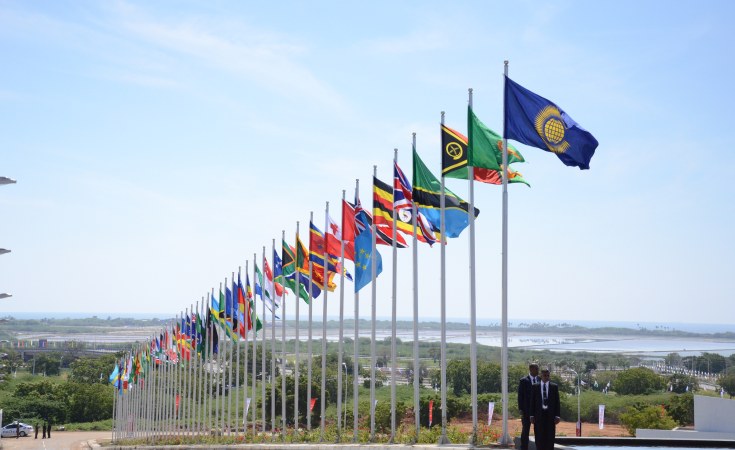Zimbabwe, the country, was not expelled from the Commonwealth. It was former President Robert Mugabe who took the decision to leave.
The people of Zimbabwe themselves never chose to leave. The bond between the people of Zimbabwe and the Commonwealth is close, spanning nearly a century. We should reunite sooner rather than later.
A cautious British Foreign Office position to wait until after "free and fair elections in July" is wrong. It would be a missed opportunity.
A meeting of Commonwealth Heads of Government in London in April will likely be the British Queen's last full gathering as its head, and every single nation in the grouping has said it will be attending. Certainly, it would have been ideal for Zimbabwe to hold an election before the country returned to the commonwealth fold. But this is a time-limited opportunity to celebrate both Gambia's return after dictatorship and the welcome transition towards democratic elections in Zimbabwe.
What we need from the UK government is a bold offer - not a list of requests of the incoming Zimbabwe administration. Attaching conditions such as free and fair elections, open trade, reduction in corruption, improvement in the ease of doing business and in human rights carries too much of a whiff of post-colonialism. There is a real danger the United Kingdom loses its influence by asking for too much, publicly.
Zimbabwe is a proud nation. President Emmerson Mnangagwa naturally does not want to be boxed in nor to be seen to go cap-in-hand to the old colonial power asking for re-entry. This explains his recent statement that he needs to consult the African Union or to consult people in all the regions of Zimbabwe ahead of deciding whether to push for re-entry. He does not want to look weak.
A strong president can be bolder and go into the election in the knowledge that acting like former Russian President Mikhail Gorbachev and making the change will be electorally successful as well as being the right thing to do. The opposition to Zanu-PF consists of fragmented opponents of Mugabe prepared to back Mnangagwa, despite his chequered past as a security chief for Zanu-PF.
When I was appointed as a Foreign Office Minister in 2014, a sage told me there were no easy decisions, just the best decisions. Early entry to the Commonwealth is a great prize for Zimbabwe, but it's a gain also for the UK, who should look to displace Chinese, Russian and Israeli influence.
Zimbabwe has massive potential. It could develop into a leader of sub-Saharan Africa and could facilitate the elimination of poverty in surrounding countries.
Being close to Zimbabwe is the right thing and the most financially beneficial approach to a UK government that would be wise to look to Africa as a long-term growth market in a Brexit world. With its wildlife, its status as net exporter and its solid infrastructure up to the 1990s, there is good reason the country was once called the bread basket of Africa.
The winds of change are blowing in Southern Africa, as Mugabe and Zuma move on. Democracy is rising. The UK needs to make a bold and broad and unconditional offer to our old friends in the Commonwealth.
James Duddridge is a Member of Parliament of the United Kingdom and served as its Minister for Africa from 2014 to 2016


